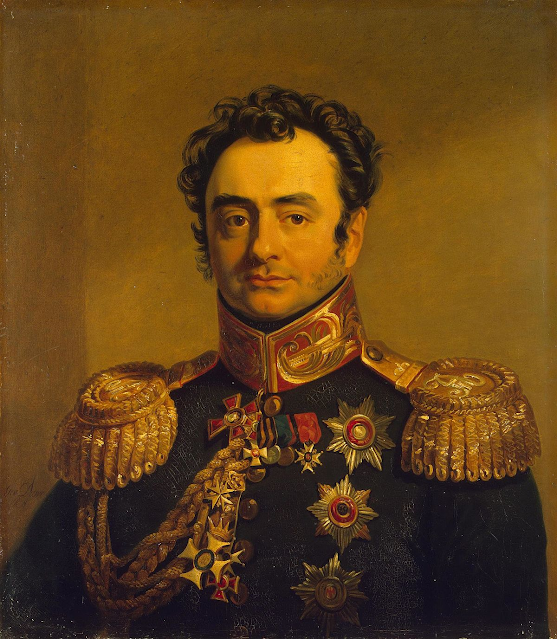Napoleon and the Battle of Waterloo, which stunned all of Europe, might not have taken place in history if it weren't for the Russian general Pavel Shuvalov, who saved him.
Paris was taken by the Coalition Forces in the spring of 1815, which led to the fall of the French Empire. Following Emperor Napoleon Bonaparte's resignation, the Bourbon family assumed the throne once more. The Coalition nonetheless permitted Napoleon to keep the title of Emperor out of reverence for the man who had previously controlled all of Europe, but the only territory under his dominion was the tiny island of Elba in the midst of the Mediterranean.
The Losing Emperor
The deposed emperor traveled quietly in a modest chariot under the watchful eyes of several Allied officers and with the assistance of a few armed retainers. General Pavel Shuvalov was then dispatched by Russian Tsar Alexander I to accompany Bonapart. It was the man to whom Napoleon later owed his own life.
Earlier, when Napoleon's Great Army attacked across the border of the Russian Empire, Count Shuvalov was the commander of the 4th Infantry Corps. But he was compelled to delegate control to someone else because of a serious ill. In 1813, Shuvalov resumed his duties as Russian soldiers marched across Europe, luring the French away from Paris. The Order of Saint Alexander Nevsky was given to Count Shuvalov in recognition of his assistance to Emperor Alexander I on all fronts.
Napoleon met Shuvalov at the Palace of Fontainebleau after his overthrow in April 1814, and he inquired about the Russian general's medals. When Bonaparte discovered that it was a medal from the War of 1812, he went days without speaking to Shuvalov. He soon had to reconsider how he felt about the Russian commander, though.
Escape from Death
At first, as Napoleon's carriage traveled through France, a large number of people cheered it on. "Long live the emperor!" they yelled. However, as it headed south, admiration was replaced by quiet, then by rage.
Napoleon was yelled at and cursed at by the crowd in Provence, but he maintained his composure and pretended not to care.
The only real threat awaited the French Emperor in the town of Orgon, south of Avignon.
A crowd had already erected a gallows with a swinging effigy of Napoleon on the route taken by the convoy. To vent their rage, they rushed into the carriage and attempted to drag the ousted Emperor down and murder him.
After overwhelming the escort by a few men, the mob reached its target, but Russian Count Shuvalov intervened at the last minute. He was the only one who could hold off the ferocious hordes before driving them away. Taking advantage of the situation, Shuvalov made a motion for the Emperor's carriage's driver to leave Orgon as soon as possible.
The mob was unable to apprehend Bonaparte; it seems they were prepared to rip Shuvalov apart. Vice versa, their rage turned to respect when they discovered a Russian general was in front of them. "Long live the liberator!" shouted the crowd.
Later, when he caught up with Napoleon's convoy, General Shuvalov offered to change his cloak and take his place in the chariot carrying the Emperor of France. The Russian Count explained that he did this so that he, rather than Napoleon Bonaparte, would be the one facing any attackers.
Shuvalov said when Napoleon questioned him in awe why he intended to do it: "Your safe banishment has been decreed by my emperor Alexander. "I'm proud to have carried out the Emperor's instructions "
Gratitude
Shuvalov's replacement trick was very effective. A few days later, Napoleon arrived at the secure harbor and was loaded into the HMS "Undaunted" of the British navy. He was transported by this ship to the Mediterranean island of Elba. Napoleon thanked the Russian commander for sparing his life by raising his sword before turning away.
During the previous 15 years of war, Bonaparte never left the precious Damascus steel sword he was given during his conquest of Egypt. He gave the priceless sword to the Count of Russia as a sign of his sincere gratitude to the donor.
Napoleon Bonaparte returned to France less than a year later, restoring control and causing three months of unrest throughout Europe. Perhaps Napoleon's "One Hundred Days" reign and even his famous defeat at Waterloo would not have been recorded in history if the Russian commander hadn't intervened to save him.
Read more:





Đăng nhận xét